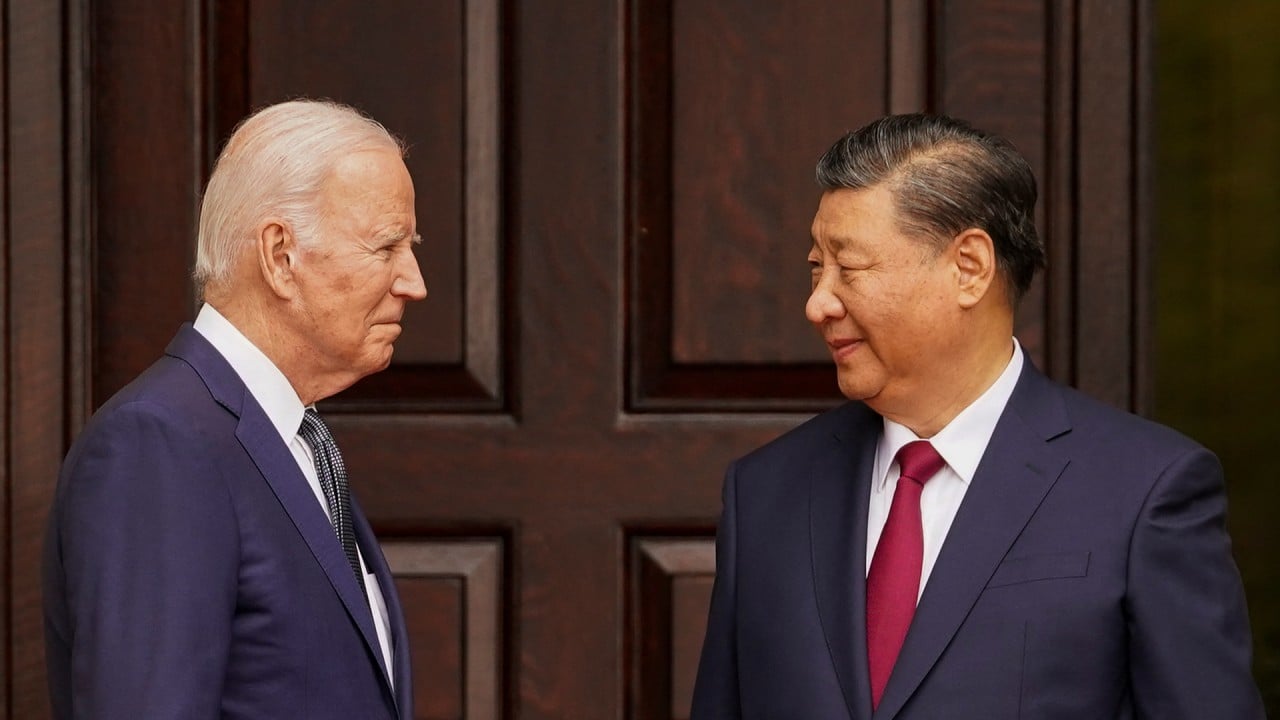At the time, the US State Department said the terms of the STA needed to be “amended and strengthened”, without specifying what changes were under consideration.
During their meeting, both leaders stressed the importance of cooperation in science and technology.
Xi said that China and the US “share common interests in a wide range of areas, including traditional areas such as the economy and agriculture, and emerging areas such as climate change and artificial intelligence”.
“Today, our common interests have increased, not decreased,” he told Biden, adding that it was “important” to cooperate in areas like counter-narcotics, judicial and law enforcement, AI, and science and technology.
Biden said that the US was ready to strengthen cooperation with China in climate change, counter-narcotics and AI, and would be glad to see more educational, scientific and technological, as well as personal exchanges between the two countries.
China replaced Britain as the United States’ top scientific partner in 2011, prompting political concerns in the US that American dominance in science and technology could be threatened by agreements like the STA.
But according to Caroline Wagner, a science policy expert from Ohio State University, in the late 1970s science was seen by US and Chinese diplomats as “a low-conflict activity, comparable to cultural exchange”.
Oldest US-China science deal up in the air as Washington seeks to ‘amend terms’
Oldest US-China science deal up in the air as Washington seeks to ‘amend terms’
“They figured starting with a non-threatening scientific agreement could pave the way for later discussions on more politically sensitive issues,” she wrote, in an article published by Australian-based independent media outlet The Conversation in August.
Early collaboration under the agreement – signed by then leaders Jimmy Carter and Deng Xiaoping on July 28, 1979 – was mostly symbolic, “but substantive collaborations grew over time”, Wagner said.
“As China’s economy expanded, so did its investment in domestic research and development. This all boosted China’s ability to collaborate in science – aiding their own economy.”
As research grants in US hit 25-year low, China plans for exponential growth
As research grants in US hit 25-year low, China plans for exponential growth
Wagner’s article was published shortly after the pact’s extension, when she noted that even if it resulted in a renegotiated agreement, the US had signalled a reluctance to cooperate with China.
“Since 2018, joint publications have dropped in number. Chinese researchers are less willing to come to the US. Meanwhile, Chinese researchers who are in the US are increasingly likely to return home, taking valuable knowledge with them,” she wrote.
“The US risks being cut off from top know-how as China forges ahead. Perhaps looking at science as a globally shared resource could help both parties craft a truly ‘win-win’ agreement.”
China beats US for first time in global scientific ‘hot papers’ ranking
China beats US for first time in global scientific ‘hot papers’ ranking
The Beijing readout of the summit said China had no plans to overtake or replace the US, nor should the US have any intention of suppressing or containing China.
China voiced its discontent with several US policies that had “seriously damaged” China’s legitimate interests, it said.
Export controls, investment reviews and unilateral sanctions by the US were suppressing China’s science and technology “to curb [its] high-quality development and deprive the Chinese people of their right to development”.

